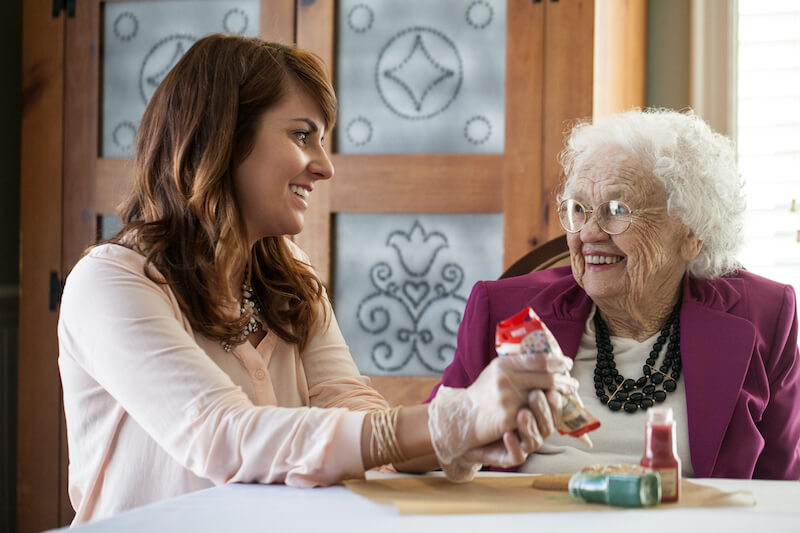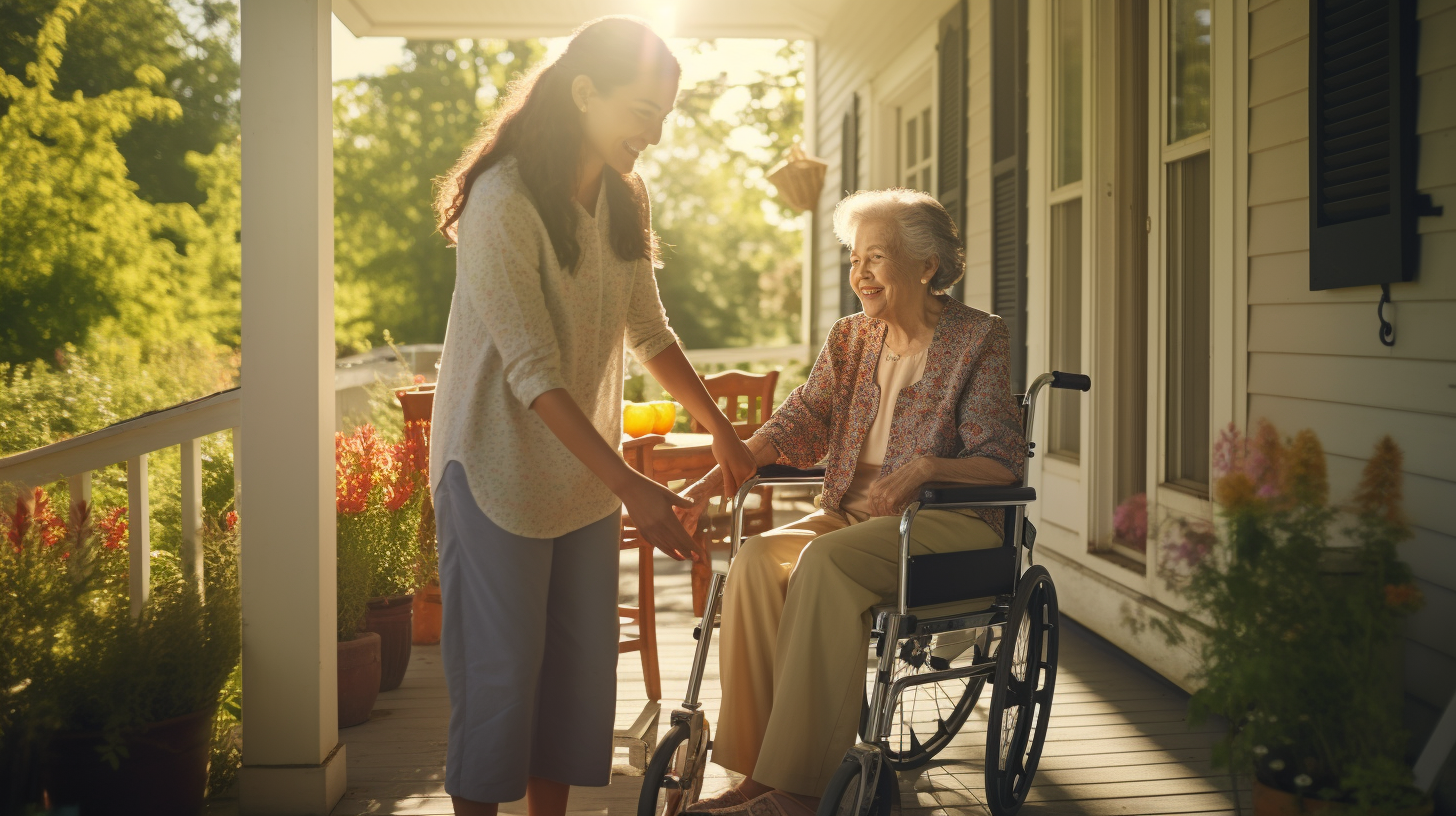
3 Ways To Avoid Caregiver Burnout
The caregiving journey is beautiful and can be rewarding for many people. As humans, we love to care for those that we love. When we see our family members or loved ones suffering, we have the desire to support them and ease their burdens. But when caregiving becomes too much for one person to handle alone, supporting others can turn into a negative and exhausting experience.
Often times, to get to the point of an unhealthy caregiving relationship, it is unnoticeable from an external perspective. The very person attempting to relieve the burden of another person ends up needing care themselves. Because of the intensity of the situation, the needs of a caregiver are often overlooked or pushed aside, putting them in jeopardy of a mental or physical breakdown. According to statistics, caregivers between the ages of 66 and 96 are at a 63% greater risk of dying than those who are not caregivers.
The Springs at Simpsonville encourages caregivers to take a break before they break down. Taking a break or seeking outside help does not mean that you are throwing in the towel and giving up on caring for your loved one. Instead, receiving outside help makes you more capable of better caring for your loved one.
While this can be a challenging concept to embrace, we want to encourage you to consider these three easy ways that you can implement to avoid caregiver burnout. Before you can put these practices into action, make sure that you mentally adjust to the truth that you are valuable and your own needs being met is an important part of this process.
Reduce Personal Stress
Chances are you have felt the strain, distress, and even frustration that comes with caregiving. While this is not something that many people want to admit, the pressure of caring well for a loved one can be extremely overwhelming. If you are caring for someone with dementia, every day can feel like an uphill battle that is repeated over and over. It can also lead to feelings of resentment and isolation.
It’s important that you combat these feelings by objectively analyzing the ways you process and respond to stress. Give yourself permission to feel the stress. Surprisingly, simply owning that you are feeling stressed will help in reducing it. When we pretend like we are not facing stress we force the levels of stress to rise and rise with disastrous results.
Another way to reduce stress is to evaluate its cause and determine whether or not there are small changes that can be made to mitigate the stress. A small change can make a big difference. Finally, simple action steps can yield substantial results. Take back a little control by doing an activity you enjoy that is unrelated to caregiving. This can be gardening, meditating, or even having coffee with a friend. Do not overlook the power of including these stress reducers in your normal routine.
Seek and Receive Help
At The Springs of Simpsonville, we celebrate the strength and dependability of our community. Families of our residents receive the benefit of being connected to others both inside and outside of the community. For family caregivers, actively seeking and receiving help can seem like admitting failure; however, it demonstrates personal strength and humility. We all must receive before we can give. As a caregiver, it is important to learn from others and be willing to take time to renew your own personal health. This is only possible if you allow others to help.
This help can come from friends (who are willing to take some time to be active in doing things that need doing), physicians (who can help loved ones in need of care and also the caregiver who may have their own health concerns), other trained professionals in healthcare (such as hospice experts who are local and able to navigate schedules) and also communities such as The Springs at Simpsonville that offers comprehensive short-term care. Short-term care is able to meet all the needs of your loved one while you spend time caring for yourself. We encourage you to explore the many options available to you and discover which one works best for your circumstance.
Communicating
While this seems intuitive, we believe that every person needs to be reminded that communication is a key element to healthy living. Sharing thoughts, experiences, and feelings enables us to hear encouragement and support from others. Make sure that you take time to share your frustrations and moments of stress with someone that you can trust that will cultivate personal well-being. Learning to listen to what others have to say about what you are facing can also provide you with new and effective ways to navigate the challenging waters of caregiving. When you practice clear, assertive, and constructive communication, you can be heard and receive help which will alleviate caregiver burnout.
At The Springs at Simpsonville, we know that caregiving is an enormous responsibility that has wonderful moments of great joy but also can have painful and stressful times as well. We encourage you to not only take advantage of the services that we offer to help you maintain your own health, but also to continue to learn and grow as a caregiver. You are worth it! Contact us today to find out how we can help you take a break.
1 Shultz, Richard and Beach, Scott (1999). Caregiving as A Risk for Mortality: The Caregiver Health Effects Study. JAMA, December 15, 1999, vol. 282, No. 23.




